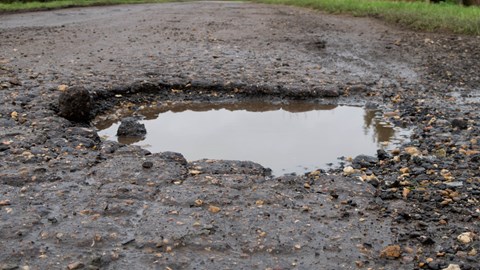► Fuel duty freeze remains in place
► First-year VED increased on many sports cars
► Money for potholes and EV infrastructure also announced
Chancellor Rachel Reeves has committed to maintaining fuel duty at its current level for at least the next year. Delivering the Labour Government’s first Budget statement since taking office, Reeves said ‘increasing fuel duty next year would be the wrong choice’ as the cost of living crisis and oil price volatility continues to bite.
The 5p cut in fuel duty – which has been in place since 2012 – will remain in place of the next 12 months. On top of that, the planned increase in fuel duty in line with inflation planned for the 2025/2026 financial year has also been nixed. According to the Treasury, the freeze will save drivers £59 per year on the cost of fuel, over the projected cost with the original duty raise.

Reeves also announced the Government’s intentions to implement Fuel Finder, which will allow drivers to find the cheapest fuel in their area. The scheme was recommended to the previous government by the Competition and Markets Authority, after it found evidence of unfair pricing practices in the fuel retail industry. The Treasury believes Fuel Finder will increase competition among fuel stations and could reduce prices by as much as 6p per litre.
RAC head of policy Simon Williams said: ‘Drivers will breathe an enormous sigh of relief. It’s good to see the Government firmly recognising the importance of the car to millions of households up and down the country. Eight-in-10 drivers tell us they are dependent on their vehicles for the journeys they need to make. It’s worth remembering that even as of today, 56% of the price of a litre of petrol is already tax in the form of fuel duty, and the VAT that is charged on top.’
VED rates changed to encourage EV uptake
But there’s a sting in the tail for new car buyers. CO2 emissions-based first-year VED rates that are paid on brand-new cars are set to change in an effort to encourage more people into EVs, widening the gap between them and combustion-engine cars.
For the 2025/2026 financial year, first-year VED will double for cars that emit more than 171g/km from £1095 to £2190. That could hit buyers of fairly prosaic large family cars particularly hard. Performance car enthusiasts, too. Buyers of the most polluting cars will have to stump up nearly £6500.
But there are no new active incentives to encourage private buyers into EVs, despite the Government reaffirming its plan to ban the sale of purely combustion-engined cars from 2030. However, the existing company car tax regime that heavily favours EVs will remain in place.

Funding to fix 1 million extra potholes
Elsewhere in her Budget statement, Chancellor Reeves said an extra £500 million will be spent fixing another 1 million potholes every year. While it’s welcome news, the RAC’s Simon Williams said the money must be spent wisely. ‘It’s vital councils don’t just use the money to fill potholes as this is unlikely to the deliver the long-term benefits drivers so badly want to see. We believe greater use of preventative maintenance is essential.’
Fresh investment in EV infrastructure was also announced. To help facilitate the transition, £200 million was committed to building chargepoints during 2025-2026, with specific funding for local councils to install on-street chargers.
The cap on single bus fares has been lifted from £2 to £3 for the 12 months from January 2025, as well. It’ll be welcome news for the bus industry, which has faced steep increases in operating costs over the last couple of years, if not passenger advocacy groups.
The editor of CAR’s sister title Parkers, Keith Adams, commented: ‘The freeze in fuel duty is welcome as it’s where we most feel the cost of driving, but the news that government is committing £500m to increased spending on road maintenance and improvements and £200m to accelerate EV charger roll-outs in 2025-26 are also heartening. We’ve been calling for improved street charging, and this answers that question.
‘Maintaining long-term tax incentives to purchase electric cars through low first-year VED rates is also welcome, as are the continued supporting of EV-friendly Company Car Tax rates, but I’d dearly love to see some help given to private buyers of new electric cars by the reintroduction of the grants that were phased out in 2023.’